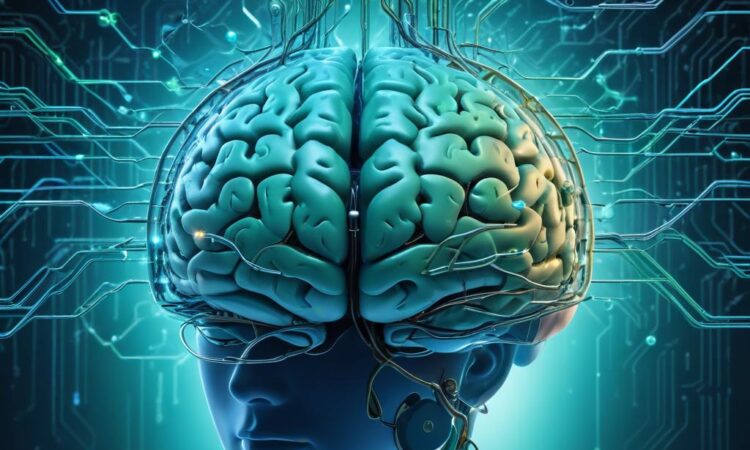AI’s Growing Role in Medical Diagnosis and Treatment
Artificial intelligence (AI) is rapidly transforming numerous sectors, and healthcare is no exception. Its increasing integration into medical practices holds immense promise for improving diagnostic accuracy, personalizing treatment plans, and streamlining healthcare processes. This exploration delves into the multifaceted impact of AI in medicine, examining its potential benefits, associated challenges, and crucial ethical considerations.
Enhanced Diagnostic Accuracy
One of the most significant applications of AI in healthcare lies in its ability to enhance diagnostic accuracy. AI algorithms, trained on vast datasets of medical images (though we cannot display images here), patient records, and research papers, can analyze complex patterns and subtle anomalies that may be missed by human clinicians. This is particularly valuable in areas such as radiology, pathology, and ophthalmology, where accurate interpretation of images is crucial for timely and effective treatment.
For instance, AI-powered systems can detect cancerous lesions in mammograms with greater sensitivity and specificity than human radiologists in some studies. Similarly, AI algorithms can analyze retinal scans to identify signs of diabetic retinopathy, a leading cause of blindness, at an early stage, allowing for prompt intervention and preventing vision loss. These advancements are not intended to replace human clinicians but rather to augment their capabilities, providing them with a second opinion and assisting in decision-making.
Personalized Treatment Plans
Beyond diagnostics, AI is playing an increasingly important role in personalizing treatment plans. By analyzing a patient’s unique medical history, genetic profile, lifestyle factors, and response to previous treatments, AI algorithms can predict the likelihood of treatment success and tailor therapies to individual needs. This personalized approach can lead to improved outcomes, reduced side effects, and increased patient satisfaction.
In oncology, for example, AI is used to predict the response of cancer cells to different chemotherapeutic agents, allowing oncologists to select the most effective treatment regimen for each patient. In cardiology, AI algorithms can analyze electrocardiograms (ECGs) and other cardiac data to identify individuals at high risk of heart failure, enabling proactive interventions to prevent adverse events. This ability to personalize treatment is revolutionizing healthcare, moving away from a “one-size-fits-all” approach to a more targeted and effective strategy.
Streamlined Healthcare Processes
AI is not only improving the quality of care but also streamlining healthcare processes, making them more efficient and cost-effective. AI-powered chatbots can answer patient inquiries, schedule appointments, and provide basic medical advice, freeing up human healthcare professionals to focus on more complex tasks. AI algorithms can also automate administrative tasks, such as medical billing and coding, reducing administrative burden and improving operational efficiency.
Furthermore, AI can optimize resource allocation within healthcare systems. By analyzing patient data and predicting future demand, AI can help hospitals and clinics manage their resources more effectively, ensuring that staff and equipment are deployed where they are most needed. This improved efficiency can lead to significant cost savings and improved access to care.
Ethical Considerations
Despite its immense potential, the integration of AI in healthcare raises several ethical considerations. One major concern is the potential for bias in AI algorithms. If the datasets used to train AI algorithms are not representative of the population, the algorithms may produce biased results, leading to disparities in healthcare access and quality. Addressing this bias through careful data curation and algorithm design is crucial to ensure equitable access to AI-powered healthcare.
Another ethical concern relates to data privacy and security. AI systems rely on vast amounts of sensitive patient data, and it is essential to ensure that this data is protected from unauthorized access and misuse. Strict regulations and robust security measures are necessary to protect patient confidentiality and maintain trust in AI-powered healthcare systems.
Furthermore, the increasing reliance on AI in healthcare raises questions about the role of human clinicians. While AI can augment human capabilities, it is essential to ensure that human oversight and judgment remain central to medical decision-making. The development of AI-powered healthcare tools should prioritize collaboration between humans and machines, not replacement of humans by machines.
Societal Impact
The widespread adoption of AI in healthcare will have a profound societal impact. It has the potential to improve healthcare access, particularly in underserved communities, by providing remote diagnosis and treatment options. It can also lead to significant cost savings, reducing the overall burden of healthcare expenditures. However, the potential displacement of healthcare workers due to automation is a serious concern that needs careful consideration and proactive mitigation strategies.
Moreover, the equitable access to AI-powered healthcare is crucial. The cost of developing and implementing AI systems can be high, potentially exacerbating existing health disparities. Efforts must be made to ensure that the benefits of AI are accessible to all members of society, regardless of their socioeconomic status.
The future of healthcare is inextricably linked to the integration of AI. Careful consideration of the ethical implications and societal impacts is essential to ensure that AI is used responsibly and effectively to improve the health and well-being of all individuals. Continuous monitoring, rigorous testing, and open dialogue among stakeholders are necessary to navigate the complexities of this transformative technology and harness its full potential for good.
The development and implementation of AI in healthcare requires a multidisciplinary approach, involving clinicians, data scientists, ethicists, policymakers, and patients. Collaborative efforts are crucial to address the challenges and maximize the benefits of this groundbreaking technology, ensuring a future where AI empowers healthcare professionals to provide the best possible care for all.
Further research and development are needed to refine AI algorithms, improve their accuracy and reliability, and address potential biases. The ongoing dialogue between experts and the public is essential to establish clear guidelines for the ethical use of AI in healthcare, building trust and ensuring responsible innovation.
In conclusion, the growing role of AI in medical diagnosis and treatment offers unprecedented opportunities to improve healthcare outcomes and streamline healthcare processes. By carefully addressing ethical considerations and fostering responsible innovation, we can harness the power of AI to create a more equitable, efficient, and effective healthcare system for all.

